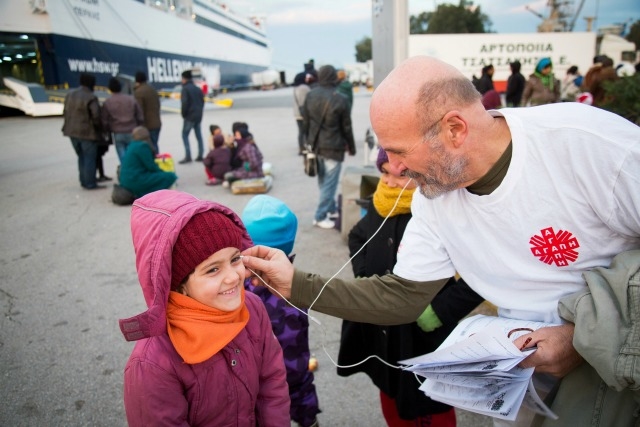
Caritas runs a soup kitchen and also provides clothes, vouchers for shelter and information for passing refugees and economic migrants in Athens. Part of the outreach is to be present at the port to inform arriving refugees before they are taken by smugglers and exploited. The little girl pictured arrived that morning. Credit: Elie Gardner/CRS
Children who migrate often suffer violations of their rights, such as being put in detention. Many studies have shown how detention, even for a few days, can affect a child’s health. Children should never be held in detention. There are more humane alternatives that do not jeopardise children’s health and are more cost effective.
Organisations, including Caritas Internationalis, have joined together to create a short document of recommended international ‘Principles’ as a reference tool on children affected by migration. Covering existing international legislation and the real situation of child migrants, the Principles can influence policy makers and be a guide to border authorities when they meet child migrants.
Principle 4 covers detention. It asks that “States should expeditiously and completely cease detention of migration affected children and allow children to remain with family and/or guardians in non-custodial, community-based contexts while their immigration status is being resolved”.
The Principles are intended to improve the quality of protection granted to all ‘Children on the Move and Other Children affected by Migration’ and to enhance programming, accountability, advocacy and communication.
Many of the Principles are already binding obligations for governments, but are poorly implemented. Their re-statement provides a workable tool for action and is a reminder of such obligations. The Principles are accompanied by an explanatory note and a list of the international legal instruments they derive from.
They have been endorsed by the UN Committee on Migrant Workers in September. Please find them in four languages (Arabic, English, French and Spanish). Caritas is a supporter of the End Child Detention Campaign.
